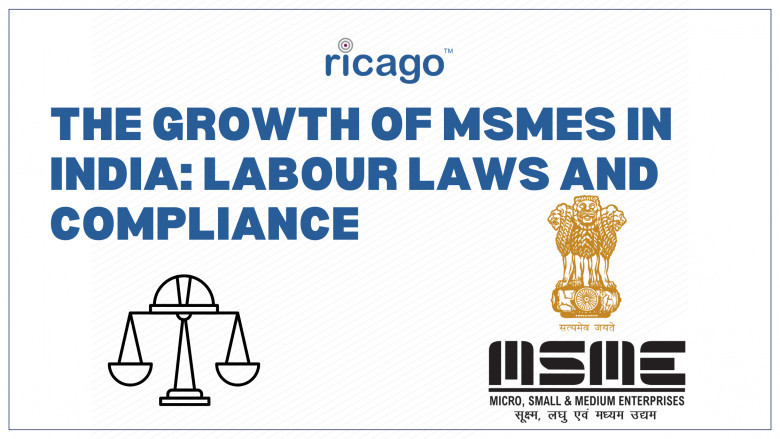views

In India, Micro, Small, and Medium Enterprises (MSMEs) play a vital role in the country’s economy. It contributes nearly 30% to the GDP and employs over 110 million people. As this sector expands, mastering labour laws in India for sustainable development becomes essential for sustainable growth. The current labour framework includes various regulations governing wages, working hours, health, safety, and worker welfare, which are being streamlined into four main labour codes. For MSMEs, especially startups and small businesses, navigating these complex regulations can be overwhelming, making labour law compliance a key challenge.
Role of Labour Laws in India’s MSME Sector
India’s labour laws are essential for ensuring fair treatment and the safety of workers across various industries. Given that MSMEs are the backbone of the economy, understanding labour laws in India becomes important for compliance and long-term sustainability.
Rules for Labour Law in India for MSMEs
MSMEs must adhere to regulations, including:
-
The Factories Act
-
The Shops and Establishments Act, and
-
The Employees Provident Fund (EPF) Act
These labour rules in India protect employee rights and promote fair work practices..
Importance of Labour Law Compliance in MSMEs
Labour law compliance is essential for Micro, Small, and Medium Enterprises (MSMEs) in India. Ensure that legal requirements in order to build a sustainable and trustworthy business. Here's why it matters
-
Avoiding Legal Penalties
Non-compliance can result in hefty fines, legal action, or even imprisonment. Labour laws like the EPF Act and the Minimum Wages Act are strictly enforced. -
Ensuring Employee Rights
Compliance ensures fair wages, safe working conditions, maternity benefits, and social security for employees. This builds trust and loyalty among your workforce. -
Improving Business Reputation
A compliant MSME is more likely to attract investors, clients, and top talent. It signals professionalism and ethical business practices. -
Facilitates Smooth Operations
Labour law compliance reduces the risk of strikes, disputes, or employee dissatisfaction, promoting uninterrupted business continuity. -
Accessing Government Benefits
Many government schemes and incentives for MSMEs necessitate proof of compliance with labour laws.
The Future of MSMEs and Labour Law Compliance
India is reforming its regulatory framework, easing labour compliance for smaller businesses through unified labour codes and simplified registration processes.
Conclusion
For MSMEs, aligning with labour laws in HR and utilizing labour law consultants is essential to smooth operations and employee satisfaction. An automated compliance checklist will empower MSMEs to scale responsibly and contribute meaningfully to India’s economy.
Ricago simplifies this process by offering comprehensive labour law compliance solutions tailored for MSMEs. Their tech-driven tools help businesses manage documentation, traceability, and reporting, enabling them to stay compliant, reduce risks, and focus on growth while building trust in a changing landscape.






















Comments
0 comment